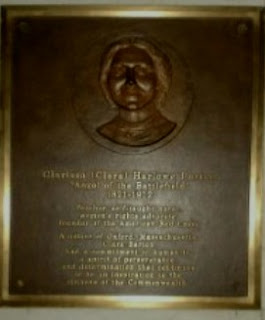Disputed Ivory Coast presidential election causes social unrest
A recent disputed presidential election has caused political and social unrest in the Ivory Coast. On November 28, 2010, Alassane Dramane Ouattara was declared the winner of a runoff presidential vote against incumbent Laurent Gbagbo. Despite being recognized as the winner of the election, Ouattara has been stymied by Gbagbo – who has refused to leave office.
According to the United Nations at least 173 civilians in the West African country have died as a result of violence stemming from the disputed election. The UN, which sent its first contingent of peacekeepers to the Ivory Coast in March 2004, currently has 10,000 peacekeepers in the country. UN representatives have said that the disputed election might result in a civil war if order is not restored.
On December 2, 2010, the Ivorian election commission declared that Ouattara received 54.1% of the vote and Gbagbo earned 45.9%. The incumbent has been in power since 2000 and has refused to leave office despite pressure from the African Union, the European Union, and the United States. On December 24, 2010, the Economic Community of West African States – which is a 15-nation regional organization, threatened military action if Gbagbo did not relinquish power to Ouattara.
In 2002, the Ivory Coast endured an armed rebellion that divided the country in half. The north is controlled by rebel forces, whereas the government controls the southern part of the nation. The civil war left thousands of people dead.
The Ivory Coast was once recognized for its economic stability. In 1960, Felix Houphouet-Boigny became Ivory Coast’s first president after independence was gained from France. Houphouet-Boigny was president until he died in 1993. During this time period, the Ivory Coast became the richest nation in West Africa. It is still the world’s leading producer and exporter of cocoa beans.
However, over the past eight years the nation has seen government scandals, UN sanctions, and violent protests. More than 20,000 Ivorians have left the country as refugees to other West African countries.
If Gbagbo does not leave peacefully, the African and international community’s response might be military action to remove him. Mr. Gbagbo still has control of the Ivory Coast’s military and security forces. This tumultuous situation is important since the stability of a key West African nation is up for grabs.
Facts about the Ivory Coast (Cote D’Ivoire):
Population: 21,058,798
Area: 124,503 sq. miles (Slightly larger than New Mexico)
GDP – per capita: $1,800 (2010, in U.S. dollars)
Official Language: French
Literacy Rate: 48.7%
Religions: Muslim – 38.6%, Christian – 32.8%, indigenous – 11.9%, none – 16.7%
Sources: www.bbc.com, www.cia.gov, Associated Press
According to the United Nations at least 173 civilians in the West African country have died as a result of violence stemming from the disputed election. The UN, which sent its first contingent of peacekeepers to the Ivory Coast in March 2004, currently has 10,000 peacekeepers in the country. UN representatives have said that the disputed election might result in a civil war if order is not restored.
On December 2, 2010, the Ivorian election commission declared that Ouattara received 54.1% of the vote and Gbagbo earned 45.9%. The incumbent has been in power since 2000 and has refused to leave office despite pressure from the African Union, the European Union, and the United States. On December 24, 2010, the Economic Community of West African States – which is a 15-nation regional organization, threatened military action if Gbagbo did not relinquish power to Ouattara.
In 2002, the Ivory Coast endured an armed rebellion that divided the country in half. The north is controlled by rebel forces, whereas the government controls the southern part of the nation. The civil war left thousands of people dead.
The Ivory Coast was once recognized for its economic stability. In 1960, Felix Houphouet-Boigny became Ivory Coast’s first president after independence was gained from France. Houphouet-Boigny was president until he died in 1993. During this time period, the Ivory Coast became the richest nation in West Africa. It is still the world’s leading producer and exporter of cocoa beans.
However, over the past eight years the nation has seen government scandals, UN sanctions, and violent protests. More than 20,000 Ivorians have left the country as refugees to other West African countries.
If Gbagbo does not leave peacefully, the African and international community’s response might be military action to remove him. Mr. Gbagbo still has control of the Ivory Coast’s military and security forces. This tumultuous situation is important since the stability of a key West African nation is up for grabs.
Facts about the Ivory Coast (Cote D’Ivoire):
Population: 21,058,798
Area: 124,503 sq. miles (Slightly larger than New Mexico)
GDP – per capita: $1,800 (2010, in U.S. dollars)
Official Language: French
Literacy Rate: 48.7%
Religions: Muslim – 38.6%, Christian – 32.8%, indigenous – 11.9%, none – 16.7%
Sources: www.bbc.com, www.cia.gov, Associated Press


Comments
Post a Comment